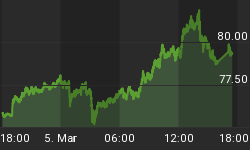Despite several quarters of rising GDP, and the upbeat exertions of Administration spokespeople, the National Bureau of Economic Research (NBER) has yet to announce the recession is over. Their reluctance is well-founded. It is beginning to dawn on even the more optimistic analysts that the tepid growth we have seen over the past three quarters is only an interlude in an otherwise grave and prolonged recession. Moreover, the respite will cost dearly as the United States has racked up a generation worth of debt for dubious benefit.
The paltry number of new jobs currently being created still fall far short of the 375,000 per month needed to offset the 125,000 new entrants to the job market due to population growth and to erode the 8 million people laid off in the past year alone. Meanwhile, house prices continue to fall and credit continues to contract. With retail sales dropping in June and the Leading Economic Index (LEI) standing at minus 7.7 per cent, it should be clear that the US economy is heading back towards recession, following a temporary distortion created by some $1.3 trillion in federal stimulus. In short, the stimulus has failed.
While there can be no doubt that an increase in government spending will result in a boost to GDP figures, the evidence of history shows that such growth is short-lived. Unfortunately as leaders around the world look to tighten the reins on out of control spending, President Obama and his Democratic supporters in Congress believe that their stimulus actions have succeeded and should be redoubled. Armed with nothing more than faith in government and a belief that spending is both a means and an end, it appears that the US stimulus policy will continue. The net result of these efforts will not be a more vibrant economy, but the perpetuation of fear and confusion in the business community and the continuing expansion of deficits that will lead inevitably to higher taxes.
The more indebted an economy becomes, the greater the burden that must be borne by the wealth-creating private sector. Indeed, at the present rate of government debt-financing, the private sector will have to contribute some $2 trillion each year in interest costs alone. This money must be raised by taxation or inflation.
This week, in response to their fears of increased regulations, higher taxes, and greater government stewardship of the economy, discontent among business leaders flared into the open. Gathering in Washington, leaders of the US Chamber of Commerce lashed out at current regulatory changes in healthcare. In other forums, business executives and investors questioned the efficacy of the freshly passed financial regulation bill.
Academic economists have identified a phenomenon they call 'fiscal drag.' Their studies show that each dollar raised in taxation incurs a government cost (tax collection and spending administration) or reverse multiplier.
The Administration estimates that the expiration of the Bush-era tax cuts will raise additional revenues of some $1.5 trillion over the next decade. In addition, some economists estimate that the Obama Health Act will raise a further $500 billion over the same time period. Using the average reverse multiplier of two, this additional taxation of $2 trillion will suck a further $4 trillion out of the wealth-producing private sector by 2020, or some $400 billion each year.
By facing the stark reality of the above factors (as more and more clear thinking individuals are), it becomes increasingly clear that a continuation of the current Administration's policies will push America into a depression.
As America is still by far the largest international consumer, an American depression would likely reshape the entire global economy. In a world where a huge number of countries, businesses, and individuals are grossly indebted, any sustained crash in asset values could be catastrophic. The dollar would be threatened severely, leaving those who have invested in gold and silver as financial survivors.
For in-depth analysis of this and other investment topics, subscribe to The Global Investor, Peter Schiff's free newsletter. Click here for more information.
Click here for a description of Peter Schiff's best-selling, just-released book, How an Economy Grows and Why It Crashes.
Please note: Opinions expressed are those of the writer.
















